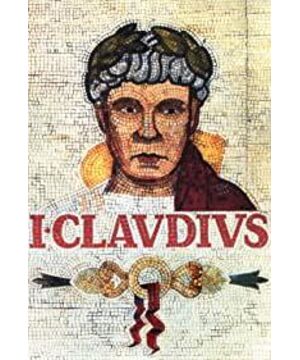A historical drama spanning four Roman emperors, the absurdity, conspiracy, madness and brutality in it show the involuntary distortion of human nature under the complex political environment and intertwined interests.
Our protagonist, Claudius, is ill-mannered, clumsy-looking, and has a stutter. In a military country like ancient Rome, he was treated predictably like a nerd on a football team. He had his place in the library, was a qualified historian, and even wrote the history of Carthage, before being accidentally proclaimed king by the Guard. What better way to tell history than someone who has experienced it firsthand? Therefore, the TV series unfolds slowly with Claudius recording his own life as a clue.
In the ancient Roman court full of intrigue and calculation, if you have a chance to become emperor, then your situation is very dangerous, because there are many competitors and allies in the dark. Claudius' grandmother -- and Augustus' wife -- Livia, who spent her life trying to make her son Tiberius emperor, deliberately eliminated all blood-related descendants of Augustus. And Tiberius was forced to divorce his wife and marry Augustus' daughter Julia. Helping Augustus conquer the world in a saddle, but still can't get his approval. Such a painful experience may have made him a tyrant when he ascended the throne. As for Caligula, he is close to a complete lunatic, and it is no wonder that he can govern the country well, so it is not surprising that he was killed by the Praetorian Guards. Perhaps this proves how dangerous it is for a ruler to have no checks and balances, including for himself.
In such an environment, there are not many things women can do, mainly including: deliberately making their son or husband emperor and finding a lover for pleasure. If Livia's interest is in politics, Claudius' second wife, Messalina's interest is mainly in the latter. When she meets a handsome man, she wants to take it as her own, and if she can't get it, she will destroy it. One consequence of a woman letting her emotions take control of her reason is that she and her sympathizers try to destabilize Claudius, who was prepared to forgive her even so.
In Claudius' life, women who loved him were too scarce. His mother despised him, and his first two wives never wanted to live with him. So, even if Messalina's love is played, he is not immune to it. Claudius wept bitterly when he learned that the two counselors had tricked him into ordering the execution of Messalina. This is an extremely sad scene. After that, all the important people in his life have left him, except for his brother, close friend, mother, wife, and his son Britannicus, who is not known whether he is biological or not, leaving only the loneliness of the emperor. Although his effect on the country is similar to a piece of driftwood (from Aesop's fable, Old King Log), a piece of driftwood lying quietly in a pond - whether it exists or not, it makes no difference.
Claudius finally chose to eat the poisonous mushrooms fed to him by his fourth wife and niece Agrippina, because death was an inescapable fate of almost every emperor in ancient Rome, and he was exhausted by confronting it in the end. He has fulfilled his mission as an ancient Roman emperor, even if this mission is against his personal will to restore the republic system, even if he is a relatively effective monarch, he cannot help Julius-Claude The Di Dynasty continued to live longer. Having gone through everything that ordinary people can and cannot imagine, this confrontation has lost its meaning and fun. The episode also ends here, leaving the audience to ponder and sigh.
View more about I, Claudius reviews











